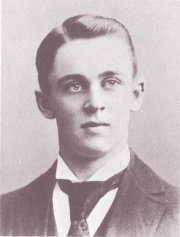Millikan’s Oil Drop Experiment
12PHYS - Electricity
Finn Le Sueur
2024
Millikan’s Oil Drop Experiment

- In the early 1900s we did not know what the charge of the electron was
- Millikan figured that if the force exerted by an electric field was strong enough, it could balance the weight force due to gravity
- By measuring the field strength needed to balance many different droplets of charged oil, he figured out that the charges were multiples of \(1.5924(17)\times10^{−19}C\)!
Styrofoam Balls
- Collect a Styrofoam Balls and Electric Fields sheet from the front.
- Come up the front and observe the behaviour of the balls as the voltage is varied.
- Use your observations and our discussion to answer Task 1-2.
Ngohe/Task
Homework booklet Electric Fields A5
In 1909 Millikan used two oppositely charged metal plates to keep a charged oil drop falling at terminal velocity when he was experimenting to find the charge of an electron. A modified form of his experiment keeps an oil drop stationary.
d) Discuss how it was possible to make the oil drop stationary between the plates. (E)
In your comprehensive answer you should:
- identify the forces acting on the oil drop
- describe how the forces can combine to cause the oil drop to be stationary
- explain what type of charge the oil drop must have in order to remain stationary.
Whakatika
- Achieved:
- Identifies the two forces
- OR says that the forces must be balanced
- OR Top plate should be positive and the charge on the oil must be negative, or vice versa.
- Merit:
- Identifies the forces AND that the forces must be balanced, as the charged drop is stationary.
- Excellence:
- Explain that the electrical force must be upwards to balance the downward weight force, as the oil drop is stationary
- AND For the electric force to be upwards, the charge on the oil drop must be negative.